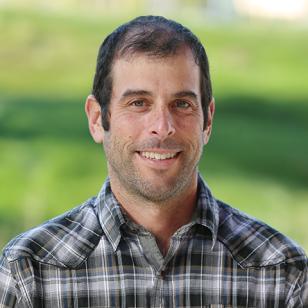Division Head
Our Approach
The Core Sequence is a unique and central component of the Stanford OHS academic program that embodies the main tenets of the school’s mission. In Core courses, the subject matters of human nature, science, history of science, political theory, and philosophy provide a forum for developing a range of analytical and philosophical skills that can be applied broadly in both academic and public reasoning. The common intellectual framework that the Core provides is characterized by an ability to ask conceptual and foundational questions in a particular discipline, a preparation to think critically about work and discourse in these disciplines, and a mastery of the principles and practice of rigorous and logically-informed reasoning.
The intellectual framework of the Core extends beyond the content and norms of thinking and writing in the individual disciplines of the courses, to an examination of the standards and structures of reasoning common to work in the sciences and humanities alike. There is also an emphasis on development of writing and presentation skills, through extensive written assignments and critical discussion on a variety of topics. The expertise, skills, and habits of mind cultivated in the Core program are therefore the foundation that both unifies the Stanford OHS curriculum and prepares students for subsequent achievement and citizenship.
The individual Core courses realize these goals in their themes, methods, and questions. In Human Nature and Society, middle-school students investigate what it means to be human by exploring how thinkers and artists have defined and interpreted human nature and human society. This course prepares students for high-school level Core and humanities courses by developing critical thinking, writing, and reading skills. In Methodology of Science – Biology (MSB), students examine the nature of strong statistical and biological evidence and also develop the technical skills to assess and employ such evidence. In History and Philosophy of Science, students study various scientific disciplines and their historical development, thus building on the knowledge and skills acquired in MSB. Students confront the circumstances under which scientific theory formation occurs, and learn to analyze the argumentative structure which grounds theories in evidence. The analysis of various theoretical views of political concepts and institutions that students undertake in Democracy, Freedom, and the Rule of Law (DFRL) in turn establishes a foundation for critically assessing rhetoric and equivocal use of concepts in political discourse. DFRL also shifts philosophical focus to the normative aspect of intellectual investigation, from the previous two courses that deal with descriptive theories in science. Critical Reading and Argumentation (CRA) explicitly discusses analytical techniques highlighted in each of the courses, including reconstruction of an author’s position, identification of neglected possibilities and problematic assumptions and inferences, and effective use of thought experiments and counterexamples. The course further develops the philosophical perspectives highlighted in the other core courses.

